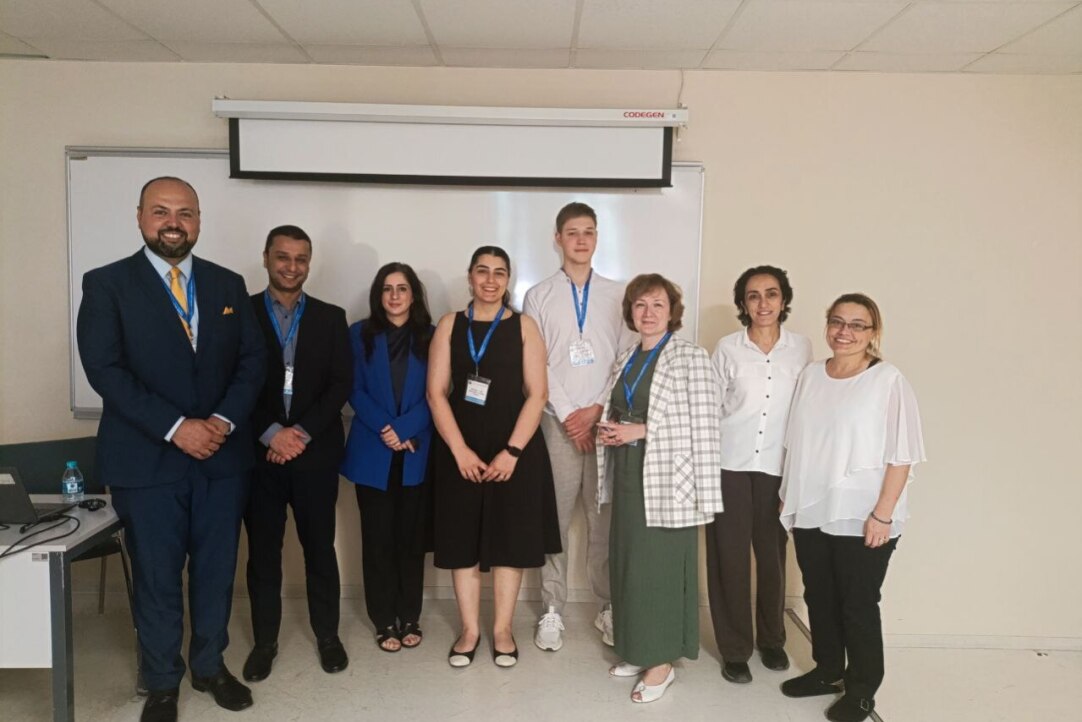Russian researchers presented their work at the International Conference of the Eurasian Business and Economics Society in Istanbul
The 52nd International Scientific Conference of the Eurasia Business and Economics Society EBES (Eurasia Business and Economics Society) was held in Istanbul from July 3 to 5, 2025, bringing together scholars from dozens of countries who presented about 200 papers. The participants presented their research in corporate finance, labor economics, innovation, marketing, corporate strategies and risk management.

On July 3, Evgeniya Shenkman presented her joint research with Mikhail Usanin, "Dual Incentive Analysis in Multi-Stage Competitions: Shadow and Spillover Effects vs. Interrank Spread." The work is devoted to the analysis of motivational effects in multi-stage competitions using the example of 3,600 matches in the final stages of major Counter-Strike competitions. This study analyzes motivational effects in multi-stage competitions using 3,600 matches from the final stages of major Counter-Strike: Global Offensive tournaments (2015–2022). The authors demonstrated that expectations regarding future opponents (the shadow effect) and the impact of prior matches (the spillover effect) can significantly alter team motivation. Considering these factors, the traditional tournament elimination model is no longer the best way to select the strongest teams.
On July 4, Egor Ivanov presented his report, "Sequence Matters: Uncovering the Performance Impact of IT Implementation Order in Enterprises”. In the report, he used the example of Russian companies to investigate whether the order in which IT solutions are implemented affects their performance. The study found that the order of implementation does not matter; however, an excessive number of technologies implemented simultaneously can reduce efficiency due to organizational resource overload and adaptation complexity. The discussion offered ideas for overcoming the study's current limitations.
On the same day in the section “Small and Medium-Sized Enterprises” there were presentations of two papers by the laboratory staff. Professor Mariya Molodchik presented a joint study with Marina Zavertiaeva, Dmitry Kirpishchikov and Anastasia Kireecheva on the relationship between human capital efficiency and risk appetite of SMEs. Using unique data on 155,000 Russian firms for 2013-2023, the authors showed that high human capital efficiency is associated with higher risk appetite, especially for small firms. However, in moderate economic crises, human capital helps to reduce the level of risk. The paper proposes a new approach to measuring the efficiency of human capital, taking into account the competitive environment.
Research assistant Anastasia Kireicheva presented a paper titled "Navigating Uncertainty: The Role of Human Capital in Enhancing SME Performance in Russia” (co-authored with Mariya Molodchik). The study focuses on how industry-specific factors modify the impact of human capital on SME performance. The results demonstrate that the impact of investments in human capital diminishes over time and varies depending on environmental factors. Specifically, industry dynamism amplifies the positive effects of human capital, whereas its heterogeneity diminishes them.
The Eurasian Business and Economics Society conference was held at a high level. Of particular interest were the plenary speeches on artificial intelligence, the sources of a country's wealth, and the demographic challenges facing the global economy.

Anastasia Kireecheva
Research Assistant, International Laboratory of Intangible-driven Economy
I especially liked the section I took part in. It was devoted to small and medium-sized enterprises and their results. All of the reports were detailed, and the conference participants demonstrated a high level of research.
